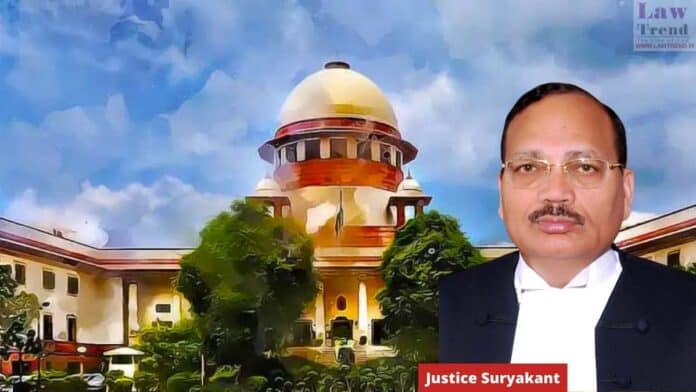Supreme Court judge Justice Surya Kant on Saturday underlined the transformative potential of technology in dismantling traditional barriers to justice and delivering legal aid to the doorstep—or even the palm—of every citizen. Delivering the Justice R.C. Lahoti Memorial Lecture at Manav Rachna University in Faridabad, he urged the reimagination of legal aid in the digital
To Read More Please Subscribe to VIP Membership for Unlimited Access to All the Articles, Download Available Copies of Judgments/Order, Acess to Central/State Bare Acts, Advertisement Free Content, Access to More than 4000 Legal Drafts( Readymade Editable Formats of Suits, Petitions, Writs, Legal Notices, Divorce Petitions, 138 Notices, Bail Applications etc.) in Hindi and English.




